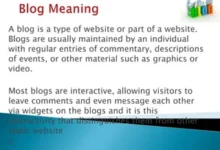Navigating Assignment Writing Help: Expert Advice for Students

Writing assignments isn’t exactly anyone’s idea of fun. Between juggling lectures, part-time jobs, and having at least some sort of social life, there’s not much room left for tackling those essays and research papers that seem to magically pile up. If you’ve found yourself staring at a blank Word document for hours, wondering how you’re going to pull off a passable assignment, know that you’re not alone.
But before hitting the panic button, breathe deep. This is the guide that will walk you through assignment writing help – how to approach and get rid of that feeling that may overwhelm the writing process. It does not matter if it is a tough research paper or something as simple as an essay, because some pieces of advice have been offered in this to assist you through this.
Why Writing Assignments Feel Overwhelming
There are a lot of reasons why writing assignments can intimidate students. For example, academic writing involves a formal tone has a particular structure, and is very odd for those fresh in the university campus. Combine such elements with unreasonably pressing deadlines, difficult prompts, and too many assignments, which would make them get stuck even.
What’s worse, though, many students are perfectionists. They rewrite the same paragraph for hours because it just doesn’t “feel right.” Others do the opposite and simply don’t know where to start and thus end up pulling all-nighters.
So, how do you get around these common traps? Let’s break it down.
Start with Understanding the Assignment
Step back and really read what is asked before reading into any assignment. Something that would seem extremely obvious, yet so many students just lose marks for not following instructions.
- What is the assignment? (Essay, research paper, case study, etc.)
- What is the word count or page length requirement?
- Is there a specific question(s) to answer? Specific prompt(s)?
- What citation style is to be used?
Identify the most important parts of the instructions and refer to them as you work. This little trick can save you from realizing too late that you missed an essential requirement.
Time Management: The Ultimate Skill
Procrastination is a classic trap. The key to avoiding it? Breaking the assignment into smaller, more manageable tasks, and spreading them out over time.
Tips for Better Time Management:
- Set mini-deadlines: That is, instead of targeting one final deadline, break down into smaller ones per stage, for example, brainstorming, researching, drafting, and editing.
- Use a planner or a digital app: Examples of apps that allow you to map out your timeline and stay on track include Trello or Google Calendar.
- Work in short bursts: Try the Pomodoro Technique—25 minutes of focused work followed by a 5-minute break.
You will avoid that dreaded last-minute cramming and produce better-quality work by planning ahead.
Mastering the Research Phase
Research is the backbone of any great assignment, but it can also be one of the most time-consuming parts. The trick is knowing where to look and how to stay organized.
Where to Find Reliable Sources:
- Library Databases: These are goldmines for academic articles, journals, and eBooks.
- Google Scholar: A free tool for finding scholarly materials.
- Your Lecture Notes: Sometimes, your professor has already given you the best starting points.
Staying Organized:
Use a note-taking app or even a simple Word document to keep track of your sources. Jot down key points and include the citation information as you go. This will make it easier when it’s time to reference everything.
Writing Like a Pro
Once your research is done, it’s time to start writing. But remember—you don’t have to get it perfect on the first try. Focus on getting your ideas down, and worry about polishing them later.
Structuring Your Assignment:
- Introduction: Clearly state your thesis or main argument. Include a hook to grab the reader’s attention.
- Body Paragraphs: Each paragraph should focus on one main idea. Start with a topic sentence, provide evidence or examples, and explain how it ties back to your thesis.
- Conclusion: Summarize your key points and restate your thesis in a fresh way. Avoid introducing new information here.
The Editing Process: Where the Magic Happens
Editing is where good assignments become great. Once you’ve finished your first draft, take a break before revisiting it with fresh eyes. Look for clarity, grammar, and flow.
Common Editing Tips:
- Read aloud. This helps catch awkward phrasing and errors.
- Use editing tools. Grammarly and Hemingway are popular options for spotting mistakes.
- Get feedback. A second opinion can make a world of difference.
When You Need a Helping Hand
Sometimes, even with the best intentions, life gets in the way, and you find yourself in need of extra support. That’s where assignment help services and tools come in handy.
Signs You Might Need Help:
- You’re completely stuck and don’t know how to begin.
- You’re juggling multiple deadlines and can’t manage your workload.
- You’re unfamiliar with the topic or format of the assignment.
There are plenty of options out there for students who need assistance. Some offer full-on writing services, while others focus on providing guidance and feedback. Just make sure to choose a reputable service.
Finding Balance: Academic Integrity Matters
It is alright to seek help, but it must not come at the expense of academic integrity. External aid should be viewed as a means of learning rather than a bypass to developing skill. The notion is, in the long term, to become better and increase your capabilities.
The Concept of “Assignment in Need”
If the support for assignment work is still not decided whom to seek, then one name that often comes is Assignment in Need (assignnmentinneed.com). If any person searches for professional and reliable assignment work, then he will find most of the students recommending the same when they get drowned. From hatching ideas to doing your research to your final draft of refinement, Assignment in Need is the one with whom students look forward and stay on track without risking their academic integrity.
Wrapping It Up
Assignment writing does not have to be something that brings you endless stress. Breaking up the process into manageable steps, having the right tools, and knowing when to seek help can take control of your workload and give you assignments you can be proud of. And in case of doubt, services like Assignment in Need will be there to guide you through. So, the next time you’re staring down a daunting assignment, just take it one step at a time. You’ve got this!





